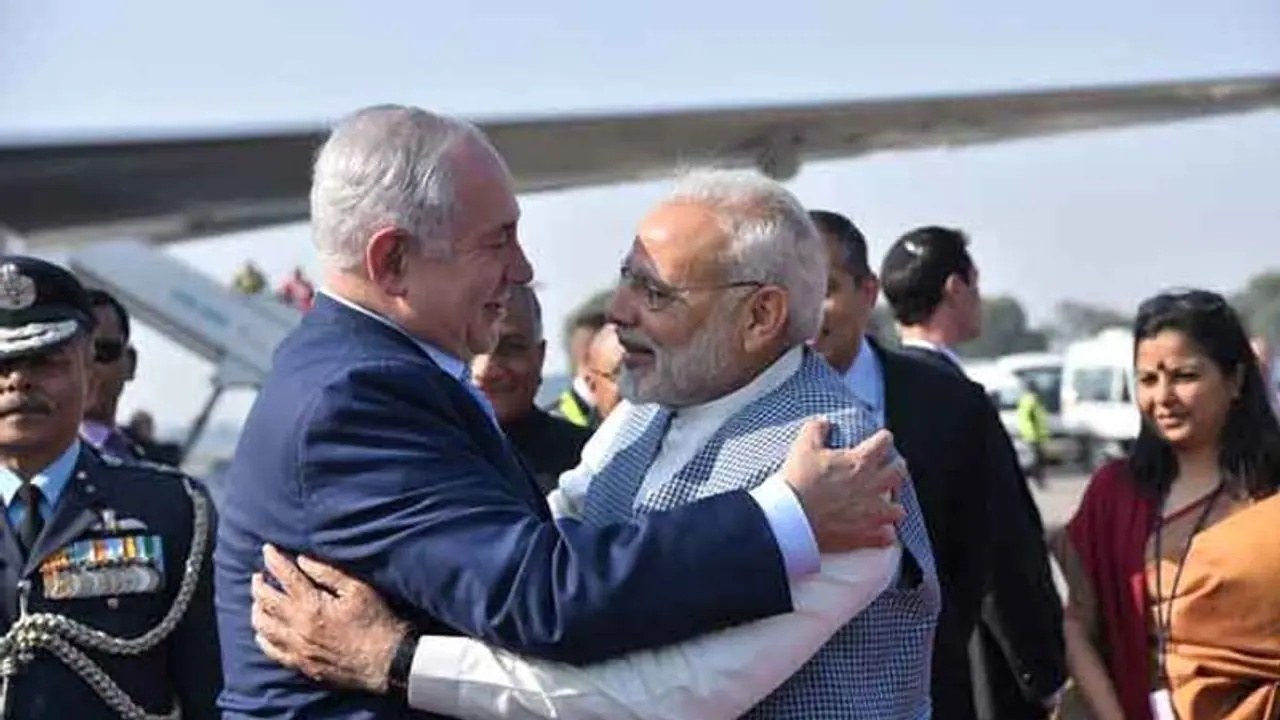Prime Minister Narendra Modi spoke with his Israeli counterpart, Benjamin Netanyahu, on Monday regarding the rapidly escalating conflict in the Middle East, urging a peaceful resolution and condemning terrorism in the region.
Prime Minister Narendra Modi spoke with his Israeli counterpart, Benjamin Netanyahu, on Monday regarding the rapidly escalating conflict in the Middle East, urging a peaceful resolution and condemning terrorism in the region.

“Spoke to Prime Minister @netanyahu about recent developments in West Asia. Terrorism has no place in our world. It is crucial to prevent regional escalation and ensure the safe release of all hostages. India is committed to supporting efforts for an early restoration of peace and stability,” PM Modi shared on X (formerly Twitter), highlighting India's concern over the ongoing conflict and its potential global implications.
The conversation between the two leaders comes at a time when Israel is intensifying its military operations in the region, particularly targeting the Lebanese militant group Hezbollah. Israel has been conducting relentless airstrikes on Lebanon, and according to reports, has successfully eliminated seven top-ranking officials within Hezbollah, including prominent commanders.
According to a report by The Washington Post, Israel is planning a limited ground operation in Lebanon and has informed the United States of its strategy. The move signals Israel’s commitment to neutralizing Hezbollah, a group long backed by Iran, which Israel considers its chief regional adversary.
Israel’s Defense Minister, Yoav Gallant, further bolstered the country’s resolve during a visit to troops stationed on the northern border. Addressing the soldiers of the 188th Armored Brigade and the elite Golani Infantry Brigade, Gallant emphasized the importance of eliminating Hezbollah leader Hassan Nasrallah, but indicated that broader military objectives remain. "The elimination of Nasrallah is a very important step, but it is not everything. We will use all the capabilities we have," Gallant was quoted as saying by The Associated Press.
Amid the ongoing hostilities, Prime Minister Netanyahu issued a stark warning directed at Iran, Hezbollah’s principal sponsor. In remarks captured by Reuters, Netanyahu asserted that Israel would not be deterred in its mission to protect its citizens and national security, warning that "there is nowhere in the Middle East Israel cannot reach."
Speaking with a tone of defiance, Netanyahu added that peace with Iran would only come once the regime was overthrown, hinting at internal unrest within Iran. "Iran and Israel would be at peace when Iran is 'finally free', which Netanyahu said would 'come a lot sooner than people think.'"
In response to Israel’s aggressive military tactics, Hezbollah has vowed to resist any potential ground invasion. Hezbollah's deputy leader, Naim Qassem, declared that the group’s fighters are prepared for any engagement on the battlefield. “We will face any possibility and we are ready if the Israelis decide to enter by land, and the resistance forces are ready for a ground engagement,” Qassem told Reuters.
The conflict between Israel and Hezbollah has its roots in a long-standing proxy war between Israel and Iran, with Hezbollah emerging as one of Iran's most potent military proxies. Since its formation in 1982, Hezbollah has been involved in multiple confrontations with Israel, with the current escalation marking one of the most significant in years.
The killing of Nasrallah, along with the elimination of senior Hezbollah commanders and the destruction of the group’s key communications infrastructure, marks the heaviest blow to the militant organization since its inception. Experts argue that these setbacks represent a strategic victory for Israel, though tensions remain high across the region.
As the conflict escalates, global leaders have expressed growing concern over the potential for regional instability. PM Modi’s call for de-escalation and peace reflects India’s position as a key global player seeking diplomatic solutions to international conflicts. India has consistently advocated for peaceful negotiations to resolve disputes, and the prime minister’s outreach to Netanyahu reinforces the need for diplomacy over further military escalation.
